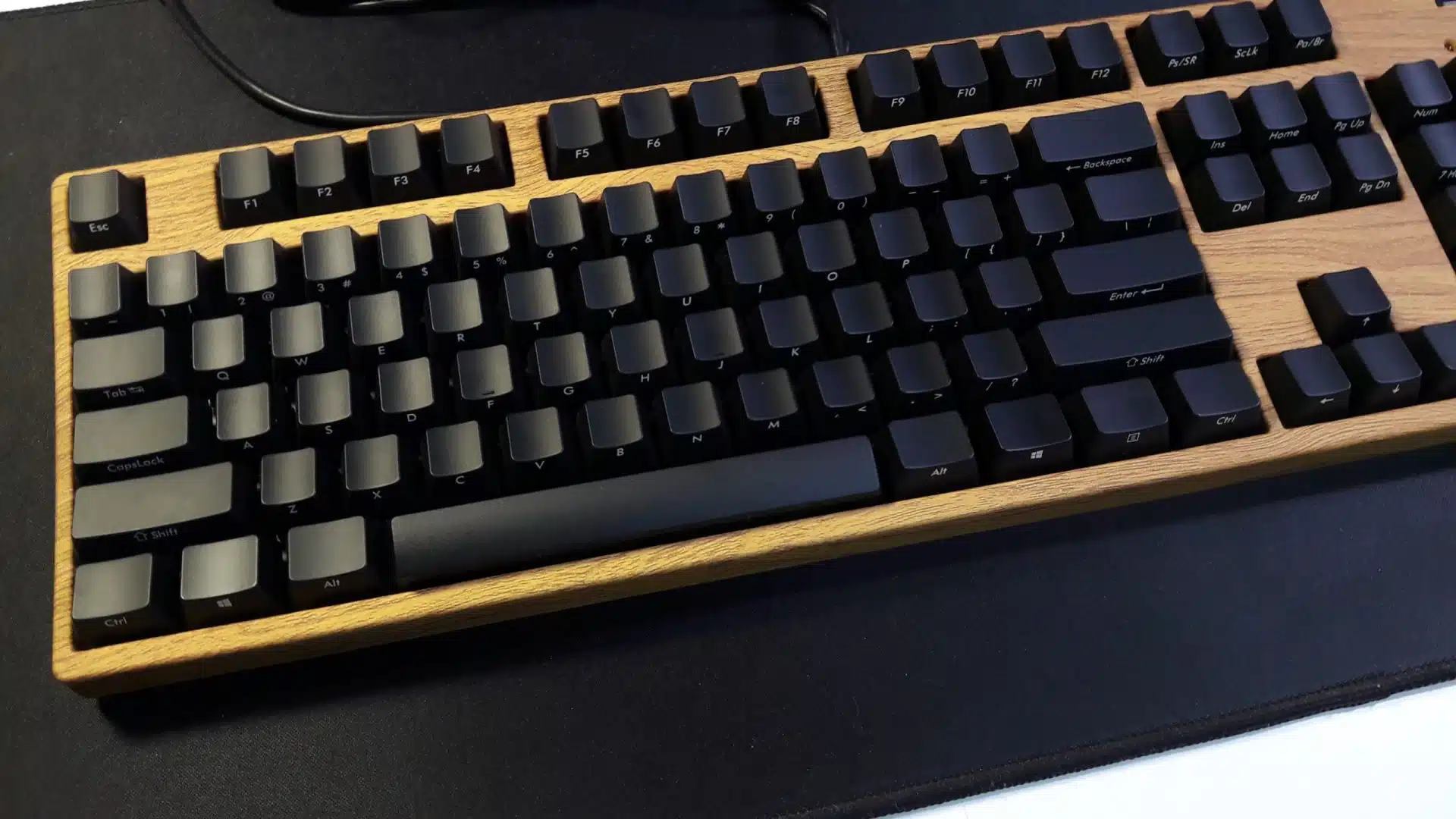What makes mechanical keyboards so great? Why are they worth investing a lot of money in? Is it because of their durability or their feel? If you’re looking to get started or make a recommendation, what are some good choices? Let’s find out in this article.
After falling into the rabbit hole of mechanical keyboards, I’ve gradually acquired several keyboards myself; at the same time, naturally, I also hope more friends will join me in this obsession (big mistake).
Below, I’ll briefly explain “what is a mechanical keyboard” and “why do we need mechanical keyboards”? Is it because of durability? Or aesthetics? Or just for showing off?

What is a mechanical keyboard?
According to the definition on Wikipedia: A mechanical keyboard is a type of keyboard in which each key consists of an individual mechanical switch (commonly referred to as a “switch”), resulting in a stronger tactile feedback.
In other words, mechanical keyboards are not a new trendy product, but rather an old-school part of the 3C world.
Why choose a mechanical keyboard? What are we pursuing?
This question is very important, considering most people probably already have the keyboard that came with their laptops or the basic membrane keyboard that came with their branded desktop computers (which is the most commonly used type of keyboard).
So, let’s go back to the basics: why do we need mechanical keyboards?
For me, choosing a mechanical keyboard often brings these benefits:
- More intuitive key feedback sensation
- More comfortable and durable typing experience
- Long-lasting and stable feedback quality
1. Clear key feedback sensation for a better typing experience
Since each key on a mechanical keyboard operates independently through a “switch” (while membranes are one whole piece of rubber), you will clearly feel the feedback of “pressing the key” every time you press a key.
This is something that membrane keyboards cannot achieve, and it makes typing for gaming and office work more comfortable. It’s also the main reason why many people believe they can’t go back to using membrane keyboards after experiencing mechanical ones. It can be considered a kind of tactile sensation.

- More comfortable and long-lasting typing experience
Many people believe that typing on a mechanical keyboard is faster, but honestly, I’ve used both quality membrane keyboards and my own mechanical keyboards, and there isn’t a significant difference in typing speed in short typing software tests.
However, the fatigue from long-term typing is, in my opinion, quite noticeable. The design and height of mechanical keyboards make fingers more relaxed. In terms of speed, I didn’t notice much difference in a five-minute test, but when it comes to average input over an hour or more, mechanical keyboards show a significant advantage.
Therefore, for those who need to type for long periods, a mechanical keyboard is a very worthwhile investment. (Consider it as an essential tool.)
- Long-lasting and stable feedback experience
Here, I won’t use the commonly mentioned term “extremely long lifespan” for mechanical keyboards because, in reality, although the “switches” of mechanical keyboards can reach around 50 million keystrokes, this number is extremely large, and most people would find it hard to reach this lifespan for a single switch.
However, even though the switches may not fail, the keyboard body and circuit board of mechanical keyboards may not be as durable, especially since mechanical keyboards are susceptible to water damage. In my opinion, the degree of damage is not significantly worse than that of membrane keyboards.
In my observation, printers, public institutions, and household membrane keyboards have all been used for over 10 years, showing that the simple lifespan of mechanical keyboards is not a particularly obvious advantage. However, the huge difference between the two lies in the “longevity of feedback quality.”
With a membrane keyboard, after some use and operation, the feedback of some keys may differ, which means after one or two years, you may find that some keys on a membrane keyboard start to malfunction, and you cannot repair them individually, you can only replace the whole keyboard (due to the limitations of the membrane structure).
With a mechanical keyboard, because of the long-lasting durability of the switches and the ability to individually “replace switches,” you can ensure that the typing feel and feedback of the entire keyboard are consistently high-quality. This is the most fascinating and durable aspect of mechanical keyboards.
Whether you type today, tomorrow, or six months later, you’ll have a similar feedback sensation.
In simple terms, maybe your mechanical keyboard won’t necessarily last much longer than a membrane keyboard (though it will probably be more durable), but when you use it, you’ll definitely be happier.

Summary:
No matter how much I say, you still need to try it yourself. The above three points are the aspects of mechanical keyboards that I am most fascinated with personally. If you also want to experience these aspects, a mechanical keyboard will be one of the most cost-effective investments in your home equipment.
Although I could give you more reasons to try to convince you, ultimately, your hands are yours. Without trying it out for yourself, it’s hard to understand what was said above. This requires your personal experience, whether it’s trying it out at a store or borrowing one from a friend, you’re welcome to give it a try.
As for how to choose a mechanical keyboard, feel free to refer to my article “How to Choose a Mechanical Keyboard? Start with the ‘Switch’ | Mechanical Keyboard Recommendations.”
To be honest, if a keyboard that costs over two thousand dollars can accompany you for three years, or even two years, I think it’s a great deal—these kinds of everyday objects are really worth investing in, and you don’t have to argue with yourself about it.
Below are some good articles from seniors for your reference. Take a look and see if the reasons provided can convince you. If they do, welcome to the world of mechanical keyboards 🙂


